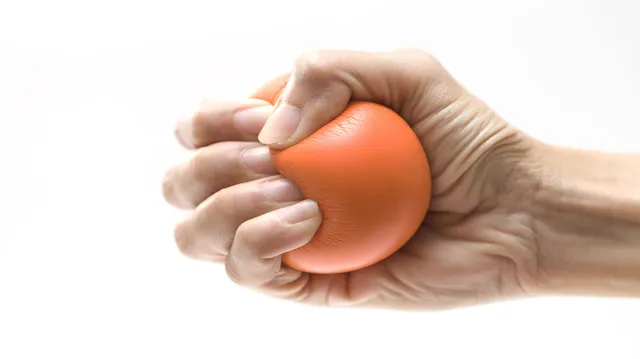We are all aware of the physiological benefits of exercise — we know how beneficial it is for our physical fitness. But exercise is extremely important to our emotional and psychological well-being, as well (and, of course, they’re all interconnected). Here are nine ways exercise makes you happier.
Endorphins
When you work out, your body releases chemicals called endorphins. They interact with the receptors in your brain and reduce the perception of pain. And similar to morphine, they stimulate a positive feeling in the body. This is part of the explanation for things like the “runner’s high.” So on a very fundamental, chemical level, exercise can indeed make you happier.

Stress reduction
Good news: The emotional and psychological benefits of exercise don’t end when your workout is over. Many people report reduced stress over an extended period of time when they work out on a regular basis. There could be a number of reasons for this. Increased physical health means you’re less likely to experience and, consequently, find yourself worrying about a range of physical ailments. Or perhaps the flood of endorphins triggers a more positive mood that those who work out regularly find easier to maintain. Exercise can also help to slow the release of stress-related hormones. Whatever the reason may be for each individual, exercise can be a major stress reducer.

Giving your mind a break
During our day-to-day lives, most of us have a lot on our minds. We’re busy with work, family commitments, errands and more. But when we’re working out, we don’t have to think about any of that. We can let the constant mental chatter go quiet and allow ourselves to get into “the zone,” as they say. And for many of us, the more we can be in the present moment without our minds wandering to the next 10 items on our to-do list, the greater our sense of well-being.

Bonding experiences
Some of us prefer to exercise alone in order to quiet our minds and more easily work out at our own pace. But others enjoy exercising with a buddy. This can be a great opportunity to build or strengthen a friendship. And it can be a standing social event each week, which can be very important, given the busy schedules and limited time for social interaction that many of us are faced with.

Energy boost
Yes, it’s often tempting to hit the snooze button and go back to sleep rather than get up and hit the gym, or to skip a workout after a long day at the office. But if you follow through with your exercise plan anyway, you’re likely to feel more energized afterward. Exercise can be an excellent way to combat fatigue, and that can have a positive impact on your mood.
Better sleep
We all know how easy it is to become grouchy or short-tempered when we don’t have enough sleep. But many people notice improved sleep when they exercise on a regular basis. If you’re someone who struggles with insomnia, working out may be a better solution than popping pills (although if you have serious sleep issues, you may want to consult a medical professional).
Reduced anxiety
According to the Anxiety and Depression Association of America, studies have shown that exercise can help to reduce anxiety and depression. And according to some studies, a 10-minute walk may be just as effective in this regard as a 45-minute workout. The positive effects on your mood can last for several hours. Researchers speculate that exercise may have a beneficial effect on mental health by helping the brain cope better with stress.
A sense of accomplishment
If you set workout goals for yourself and reach them, it will boost your confidence and sense of accomplishment. These don’t have to be excessively challenging goals. You don’t need to be running a mile in under six minutes. You can simply set the goal of working out for 20 minutes three times a week. And following through with that can be highly satisfying.
Improved immunity
For most of us, a cold or flu is more than enough of a reason to be in a crabby mood. But studies show that regular exercise can help to boost our immunity. Physical activity can help to flush bacteria out of the lungs and airways and, as mentioned above, helps to slow down the release of stress-related hormones, which can be related to illness.
Clearly, exercise does more than simply boost our physical fitness. Maintaining a regular exercise routine is an important aspect of mental and emotional health, as well. And the good news is, it doesn’t have to be overly rigorous exercise. Moderate physical activity performed on a regular basis is likely enough to do the trick.
—Sarah Cooke
Sarah Cooke, is a Certified Body Image and Eating Psychology Coach and writer who is passionate about organic food and helping others heal at the deepest level.
Sources:
http://www.adaa.org/living-with-anxiety/managing-anxiety/exercise-stress-and-anxiety
https://www.nlm.nih.gov/medlineplus/ency/article/007165.htm

